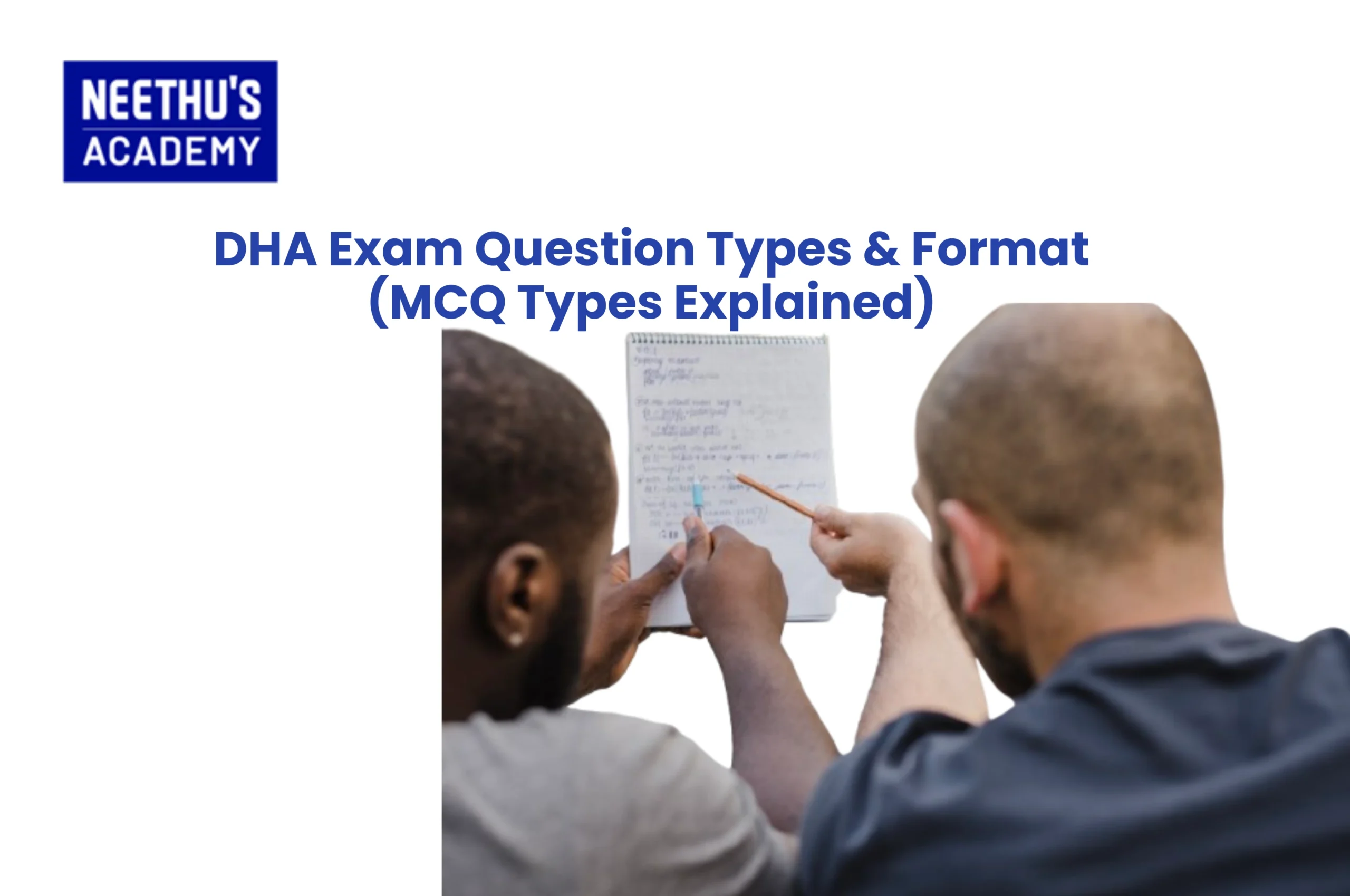Imagine you are running out of time and still have questions to complete! That would be the worst-case scenario while taking a…

B2 German Exam Demystified
The B2 Goethe German exam is more than just a test, it’s your ticket to unlocking the world of advanced German. It’s the moment when you shift from learning German to living it, where you can read complex texts, hold meaningful conversations, and truly connect with the language and culture.
But how do you get there? That’s where we come in. In this blog, we’ll be your guide on this linguistic adventure. We’ll explore the ins and outs of the B2 exam, from its structure to the skills you need to master. Whether you’re aiming to study, work, or simply thrive in a German-speaking environment, this guide is your first step toward success.
Understanding the B2 Goethe German Exam
The B2 Goethe test is designed to check the candidate’s language ability in using advanced German. This level should enable learners to understand the main ideas of complex text on both concrete and abstract topics, including technical discussions in their field of specialization. This exam tests four major language skills: listening, reading, writing, and speaking. Each section of this examination is crafted to test one specific part of your competence in German, ensuring, therefore, that you are able to master it widely at the level of B2.
Listening: This part checks your ability to understand spoken German in diverse contexts, such as conversations, interviews, news reports, and so on.
Reading: This part will assess your reading skills in written German. Here, you will come across various texts, including articles, reports, and letters, followed by questions requiring you to prove your knowledge of general and specific information in supposedly understood texts.
Writing: Here, you need to write clear and imaginative text in a coherent way on a set topic. This may be in the form of a non-literary letter, or a report, or a story.
Speaking: The speaking category of the test examines your ability to communicate appropriately in spoken German.
Detailed Breakdown of the Exam Sections
The parts of the B2 Goethe exam are ultimately designed in ways to test specific aspects of skills in the German language. Below is a detailed breakdown of what you can expect in each part of the exam:
Listening (Hören):
The Listening section of the B2 German exam, lasting about 40 minutes, includes a mix of short and long audio clips such as discussions, interviews, and news reports. You’ll encounter various response types, from multiple-choice questions to short answers, requiring you to identify both general and detailed information. For example, you might hear two speakers debate the sustainability of different energy sources and then choose supporting factors for each. This section can be challenging due to the fast pace and use of colloquial expressions, but practicing with different German dialects and accents can make it more manageable.
Reading (Lesen):
The Reading section of the B2 German exam, lasting 80 minutes, includes various text types like articles, advertisements, letters, and informational pieces. The questions assess your ability to identify details, understand the writer’s purpose, and interpret implied meanings, such as discerning whether the tone is critical, neutral, or supportive. The challenge lies in navigating complex sentences and specific terminology. To overcome this, it’s essential to read a wide range of texts across different genres, helping you become familiar with diverse writing styles and terminologies.
Writing (Schreiben):
The Writing section of the B2 German exam, lasting 80 minutes, involves tasks like writing formal or informal letters, reports based on provided data, or essays on specific topics. Clarity, coherence, and correct language use are essential. For example, you might be asked to argue for or against online education versus traditional classroom learning. The key is to produce a well-structured, grammatically accurate text within the time limit. To excel, it’s advisable to outline your essay or letter before writing to ensure a logical flow of ideas.
Speaking (Sprechen):
The Speaking section of the B2 German exam lasts 15 minutes per candidate and consists of two parts. First, you’ll express your opinions on a given topic, and then engage in a longer discussion with the examiner or another candidate. This section tests your fluency and accuracy in conversation, with topics like describing your favorite book or film. Since this part can be nerve-wracking, practice discussing various topics with a language partner or teacher to build confidence and receive valuable feedback.
Syllabus for the B2 Goethe German Exam
The syllabus for the B2 Goethe exam is extensive and includes many areas that can assist you in attaining an advanced level of proficiency in the German language. Some of the main areas you should focus on when preparing for the B2 Goethe exam are outlined below:
Grammar: By level B2, you would have a good knowledge of German grammar. This involves complex sentence structures, subjunctive forms, passive voice, and several tenses. All these have to be learnt for written and spoken communication to be effective. For example, you should be able to easily use the Konjunktiv II—subjunctive mood—to indicate hypothetical situations or courtesy appeals.
Vocabulary: The B2 exam needs a rich vocabulary area related to work, education, society, culture, and technology vocabulary. In addition, you must know idiomatic and colloquial expressions of current use in daily life.
Listening and Reading Comprehension: The syllabus includes all sorts of listening and reading materials, ranging from news articles and reports to interviews and discussions. Understand and analyze texts by identifying the main ideas, supporting details, and the author’s intent.
Writing and Speaking: The exam will require you to demonstrate useful communicative skills of ideas and opinions efficiently and coherently in both written and spoken German. This text includes organizing stories, and group discussions, as well as expressing arguments or comments about another subject. You will have to develop the language task and speak in relation to the situation, say, writing a formal letter or talking informally.
Strategies and Tips for Preparation
Regular Practice: The result in a language as complex as German at a B2 level is directly proportional to the amount of practice one does. Therefore, it’s very important to practice daily, focusing on various LAN elements daily. This can be done with grammar exercises, vocabulary building, or listening practice.
Authentic Materials: Materials, such as newspapers in German as well as podcasts and even TV shows that are read, listened to, and tried to understand, can be put to use in this way, familiarizing an individual with the types of texts and audio clips one is bound to meet for the exam. This will serve to develop one’s comprehension competencies, thus giving one real-life exposure to language use
Take Mock Exams: Use mock exams to get a feel for the format and time constraints of the examination. This is how you are going to increase your confidence and spot your weak areas. The Goethe-Institut provides practice material very similar in type and form to the actual exam.
Join a study group: Be part of a study group or course that allows you to practice speaking, if possible, with peers and get teachers’ feedback. Group study can further provide the drive and accountability one requires while preparing for the exam. Engaging in discussions on various topics will help gain fluency and confidence to attempt the speaking section.
Typical Problems and Ways to Surmount Them
Time Management: Most test takers feel nervous about finishing off the sections within the stipulated time. Usually, that fear can be eliminated by practicing a lot of exercises and taking practice exams. This would help build speed and efficiency in answering the questions. Chalk out a plan for each section; for instance, before answering a question, one can just give a quick preview to the reading passages, and while writing an essay, one can quickly make an outline.
Nervousness in Speaking Exam: Well, it’s only natural to be somewhat or even very nervous in an exam when speaking, but it can mar your performance. To counter the stress, have more spoken German as much as possible before the exam; for this, in most situations, it is effective to speak on your feet.
Understanding Complex Texts: Texts in the reading section are often tough, with a lot of complex language and ideas. Ease this up by trying to build a good vocabulary and then practice with some challenging texts. Be sure to break down complex sentences into parts and hence understand the meaning properly. Re-read parts as often as you have to.
Ability to Clearly Express One’s Thoughts in Writing: Writing in a foreign language can really be very daunting, especially when you are expected to write purposeful and coherent texts. As you practice, write essays and letters on a myriad of topics, paying particular attention to grammar and vocabulary, coupled with the organization and flow of ideas
To Wrap things up
The Goethe German B2 exam is an engrossing but challenging test of language proficiency. Clearing this B2 examination is one super giant step forward for anyone aspiring to study in Germany, augment their career, or even just gain fluency in the language. Memorize: Consistent practice, exposure to real materials, and a strategic study plan can be your survival kit amidst all odds on this advanced language exam. So work hard and achieve the success you desire!
Related Blogs
- All Posts
- OET
In case you are immigrating to Canada or looking for higher studies in the French-speaking parts of the nation, then the TCF…
Feeling a bit overwhelmed about the OSCE? You're not alone! The Objective Structured Clinical Examination is a big step in your medical…
Course Enquiry
Latest Posts
- All Posts
- canada
- CBT
- DELF
- DHA
- French
- GENERAL
- German
- Haad
- IELTS
- IQN NEW ZEALAND
- MOH
- NCLEX-RN
- NHRA
- OET
- OSCE
- Pearson Vue
- PROMETRIC
- PTE
- TOEFL
- Back
- NCLEX - NGN
- Back
- OET FOR PHYSIOTHERAPIST
- OET FOR PHARMACIST
- OET FOR DOCTORS



Frequently Asked Questions
First of all, every person who is wondering how tough the German B2 Exam really is has to know that it requires a lot of language competence. One should be able to realize complex perceptibility in a language, talk in detail, and lastly, write a structured essay. This is quite achievable with regular practice and proper preparation.
The German B2 exam consists of four parts: Listening, Reading, Writing, and Speaking. Each area tests an individual range of abilities in using the language: understanding spoken and written German, composing essays or letters, and having a conversation. This exam is taken for about 3-4 hours in its entirety.
The German B2 Examination is conducted to test someone’s ability to speak and understand with regard to every topic. It’s for those who can easily and spontaneously communicate with native speakers without much effort, and, in addition, express themselves in clear and detailed texts on many different subjects.
Basically, to work in Germany, mostly a B2 is sufficient to get a job, especially in fields where professional communication in German becomes essential. Nevertheless, some rather specialized or higher-level positions might request a C1 level or higher.
The B2 level provides evidence of a very strong command of the language and enables one to communicate effectively in most situations. While not yet considered fully fluent, at B2, you can maintain a detailed conversation, understand complex material, and express yourself clearly in German.
